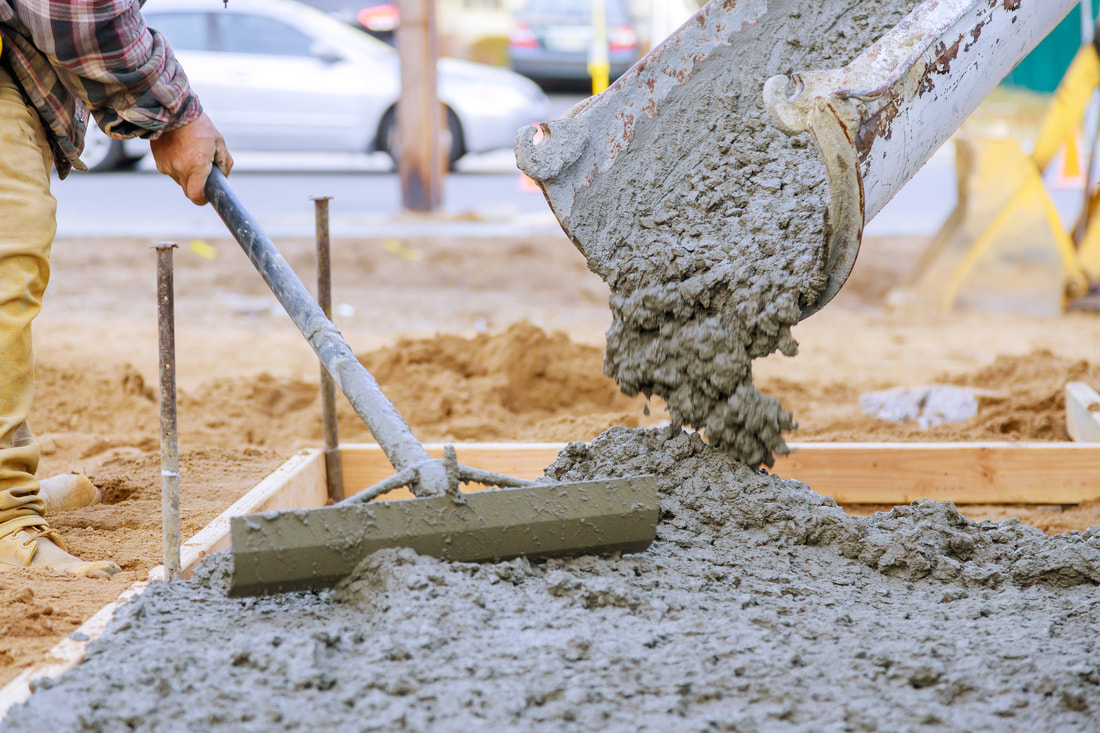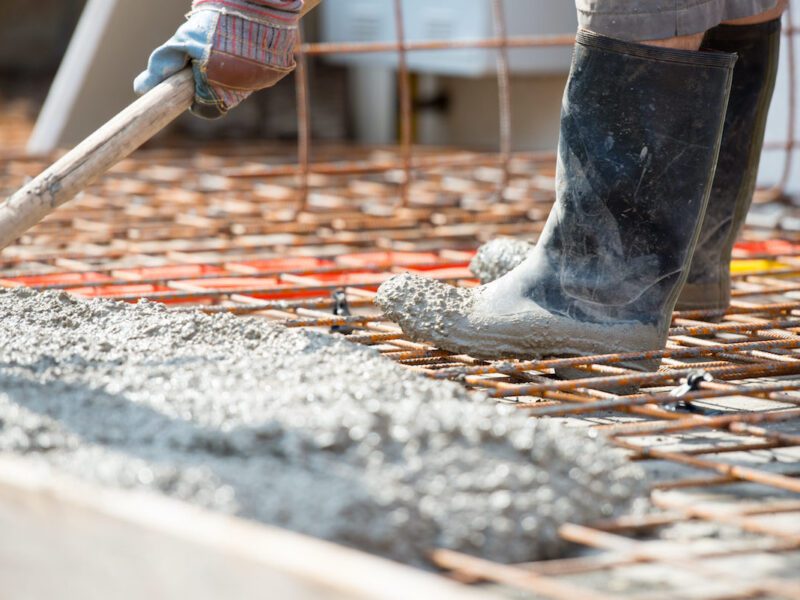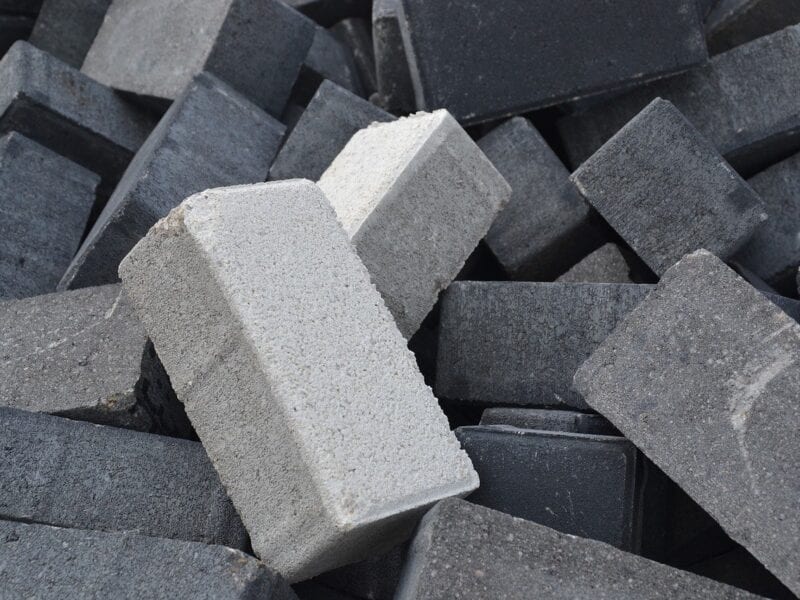
Concrete Calculator: How Much Concrete Do You Need
If you have ever considered constructing anything that requires concrete, chances are you have heard about a concrete calculator. Concrete is a mixture of fine and coarse aggregate mixed with cement paste (fluid cement) that hardens after some time. Aggregates are usually gravel (crushed stones) and sand, while the cement paste is Portland cement mixed with water.
Portland cement is not a brand name like most people think; it is a generic name for cement used to make all types of concrete. The aggregate binds with water and cement and hardens into a mass like a rock through hydration.
There is no exact time taken for the concrete to completely dry, but it is estimated that after 28 days, the concrete attains about 99% of comprehensive strength. The hardening process continues for years, and the concrete gets stronger over time. Because the process may be overwhelming for others, it is usually good to hire a concrete contractor like topconcrete.ca to help you avoid wastage.
What is a Concrete Calculator?
A concrete calculator is used to estimate the amount of concrete you require for a given area and the number of cement bags needed. It helps you to account for concrete weight, density, and spillages.
Because cement is usually sold in bags, the concrete calculator can help you know how many bags are needed. It also works because you see the size of a bag, and calculating the amount of concrete a bag yields is relatively easy.
If you can estimate the number of bags needed, then you can also calculate the cost required. There are many reasons why you need a concrete calculator. Continue reading to learn more about the concentrate calculator.
Why Use the Concrete Calculator?
You may wonder why you need a concrete calculator while you can estimate using just your eyes and your thinking. Here is a scenario, which you may also have encountered. You may have decided to build a fence, a terrace, or a house and choose to estimate the requirements.
You get to a shop, order X bags of cement, feel confident about it, and even think some will remain. After some time, you realize that there is only a single bag remaining. You add more bags, and after some time, they are depleted again.
With frustration, you go for a bit more bags. By the end of the project, you again realize that you have more than half of the extra bags remaining without use. You have wasted time and money at the same time.
Concrete Vs. Cement
Cement and concrete are terms that people often confuse. You will easily find someone using concrete instead of cement and the other way round. From the word go, we have cement and concrete. The most significant difference between the two is that cement is found in concrete, and concrete is not found in cement.

How to Make Concrete
Concrete production is time-consuming. During the process, various ingredients are mixed; aggregate, cement, water, and additives. After mixing, the components (concrete) should be cast in place immediately before it hardens. For large buildings in this modern age, the process occurs in a concrete plant or extensive industrial facilities.
Using too much cement paste is also not ideal because the surface will be smooth but susceptible to cracking and relatively result in uneconomical concrete. But, again, this is where you need a concrete calculator to guide you on the ingredients, and the total concrete required.
Types of Concrete
Concrete comes in a variety of finishes, performance characteristics, and compositions. These varieties meet several needs. Here are some types of concrete that you need to know;
- Plain or ordinary concrete– this is the standard type used in many buildings and other general constructions. It is made of coarse aggregates, sand, and cement.
- Reinforced concrete- is the most important and common type of concrete you find in most places. It is simply concrete with stew used to strengthen it. This is common with tall buildings.
- High-density concrete– is also called heavyweight because of its density. The density of these concrete lies between 3000 and 4000kg/m3. This is commonly used in atomic power plants.
- Lightweight concrete– as the name suggests, this is relatively light concrete. It usually has low thermal conductivity with a density of lower than 1950kg/m3.
- Precast concrete– this is a term that refers to prefabricated concrete blocks. The blocks can be in different sizes and shapes.
How Much Concrete Do You Need?
- The first step is usually to determine an estimate of the concrete volume needed. To do that, the calculator will need the length, width, and height; that is, simply the volume or the area.
- Determine the weight of the ingredients to be used. Bagged cement is sold this way, and it’s relatively easy to estimate the concrete you expect from it. For example, you can get 60 pounds from a single bag. Using concrete’s density (the info is provided in the bag) and the volume we just calculated above, you can calculate the weight of the single elements.
- The calculator also requires the size of the bag to determine how much concrete you should expect.
- You can also provide the waste ratio. It is used to find out how much loss you are likely to get via spillages. From the above, you will honestly know how many bags you are likely to buy.
Bottom Line
A concrete calculator helps you save money and time. It allows you to calculate the cost of a concrete slab easily. While you know the amount of concrete you need, it is easy to calculate the ingredients’ point. This goes a long way to help you approximate the cost of the entire project.
If it sounds tricky or relatively difficult to go through all the calculations, then you can get a concrete contractor to help you out. There are excellent contractors out there like topconcrete.ca that are available to offer top-notch services. Whether you want the public, commercial, residential, or industrial job done, they are the experts.







